Today Current Affairs: 9th November 2022 for UPSC IAS exams, State PSC exams, SSC CGL, State SSC, RRB, Railways, Banking Exam & IBPS, etc
Table of Contents
National Florence Nightingale Awards 2021:

President presented the award to the nursing profession.
- Florence Nightingale was a British Nurse, Statistician and social reformer, born in Florence, Taly (1820).
- Her effort during Crimean War (1854-56), by curing patients, calculating mortality data and showing how improvements made in sanitary methods would reduce the number of deaths, won her recognition.
- She is also known as the land with the lamp and the founder of modern nursing.
- National Florence Nightingale Awards was instituted in 1973 by the Ministry of Health and Family Welfare to recognize meritorious service rendered by nursing professionals in India
- To mark the 200th anniversary of Florence Nightingale, WHO announced the year 2020 as the year of the Nurse and Mid-Wife.
Guru Nanak Dev Jayanti:

The 553rd birth anniversary of Guru Nanak Dev was celebrated.
- Birth in 1459 at Talwandi Rai Bhoe village near Lahore, which was later renamed as Nankana Sahib.
- He was the first of the 10 Sikh gurus and the founder of Sikhism.
- Contributions:
- Initiated inter-faith dialogue way back in the 16th century and had conversations with most of the religious denominations of his times.
- Wrote compositions which were included in the Adi Granth, compiled by Guru Arjan (1563-1606), the fifth Sikh guru.
- This came to be known as Guru Granth Sahib after the additions made by the 10th Sikh guru – Guru Gobind Singh (1666-1708).
- Advocated the ‘Nirguna’ (devotion to and worship of formless divine) form of bhakti.
- Rejected sacrifices, ritual baths, image worship, austerities.
- Set up rules for congregational worship (Sangat) involving collective recitation.
- Gave the basic mantra of ‘Ek Onkar’ to his followers and insisted on treating all human beings equally, without discriminating on the basis of caste, creed and gender.
- Death: In 1539 at Kartarpur, Punjab.
What Is Black Sea Grain Initiative?
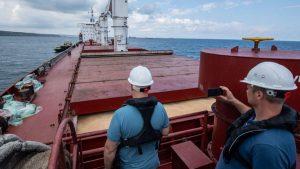
Russia re-joined the Black Sea Grain Initiative.
- The Black Sea Grain initiative endeavours to tackle escalating food prices emanating from supply chain disruptions because of Russian actions in the world’s ‘breadbasket’.
- The deal brokered by the United Nations (UN) and Turkey, was signed in Istanbul in July, 2022.
- Initially stipulated for a period of 120 days, the deal was to provide for a safe maritime humanitarian corridor for Ukrainian exports (particularly for food grains).
- The central idea was to calm markets by ensuring an adequate supply of grains, thereby limiting food price inflation.
- The deal put in place a Joint Coordination Centre (JCC), comprising senior representatives from Russia, Turkey, Ukraine and the UN for oversight and coordination.
- All commercial ships are required to register directly with the JCC to ensure appropriate monitoring, inspection and safe passage. Inbound and outbound ships (to the designated corridor) transit as per a schedule accorded by the JCC post-inspection.
- This is done so as to ensure there is no unauthorised cargo or personnel onboard.
- Following this, they are allowed to sail onwards to Ukrainian ports for loading through the designated corridor.
Amendments In Electoral Bond Scheme:
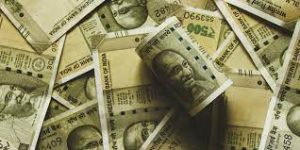
Weeks ahead of elections in certain states, the Central Government has amended the Electoral Bond Scheme.
Amendments Made to the Scheme:
Additional Period of 15 Days:
- Introduced a new para, stating that an additional period of fifteen days shall be specified by the Central Government in the year of general elections to the Legislative Assembly of States and Union territories with Legislature.
- In 2018, when the Electoral Bond Scheme was introduced, these bonds were made available for a period of 10 days each in January, April, July and October, as may be specified by the central government.
- An additional period of 30 days was to be specified by the Central Government in the year of the General election to the House of People.
Validity:
- The Electoral Bonds shall be valid for fifteen calendar days from the date of issue and no payment shall be made to any payee Political Party if the Electoral Bond is deposited after expiry of the validity period.
- The Electoral Bond deposited by an eligible Political Party in its account shall be credited on the same day.
Eligibility:
- Only the political parties registered under Section 29A of the Representation of the People Act, 1951 which secured at least 1% of votes polled in the last General Election to the Lok Sabha or the State Legislative Assembly are eligible to receive Electoral Bonds.
Provisional State Of Global Climate Report 2022 : WMO

The World Meteorological Organization (WMO) released the provisional State of the Global Climate report, 2022.
Highlights of the Report:
- The concentrations of three main greenhouse gases, carbon dioxide (CO2), methane (CH4) and Nitrous oxide (NO2), were all at record highs in 2021.
- The emissions of methane, which is 25 times more potent than carbon dioxide in causing global warming, in fact, increased at the fastest pace ever.
- At the climate change conference in Glasgow, countries had pledged to cut global methane emissions by at least 30% by the year 2030.
- The global average temperature in 2022 is estimated to be about 1.15 °C above the 1850-1900 average.
- 2015 to 2022 are likely to be the eight warmest years on record.
- La Niña (a cooling of sea-surface waters in the equatorial Pacific Ocean) conditions have dominated since late 2020 and are expected to continue until the end of 2022.
- Continuing La Niña has kept global temperatures relatively low for the past two years – albeit higher than the last significant La Niña in 2011.
- In the European Alps, glacier melt records were shattered in 2022.
- Average thickness losses of between 3 and over 4 metres were measured throughout the Alps, substantially more than in the previous record year 2003.
- In Switzerland, 6% of the glacier ice volume was lost between 2021 and 2022, according to initial measurements.
- For the first time in history, no snow outlasted the summer season even at the very highest measurement sites and thus no accumulation of fresh ice occurred.
- Global mean sea level has risen by an estimated 3.4 ± 0.3 mm per year over the 30 years (1993-2022) of the satellite altimeter record.
- The rate has doubled between 1993-2002 and 2013-2022 and sea level increased by about 5 mm between January 2021 and August 2022.
- The ocean stores around 90% of the accumulated heat from human emissions of greenhouse gases.
- The upper 2000m of the ocean continued to warm to record levels in 2021.
- Overall, 55% of the ocean surface experienced at least one marine heatwave in 2022.
- In contrast only 22% of the ocean surface experienced a marine cold spell. Marine heatwaves are becoming more frequent, in contrast to cold waves.
- In East Africa, rainfall has been below average in four consecutive wet seasons, the longest in 40 years, with indications that the current season could also be dry.
- Record breaking rain in July and August, 2022 led to extensive flooding in Pakistan.
- The flooding came hard on the heels of an extreme heatwave in March and April in both India and Pakistan.
- Large parts of the northern hemisphere were exceptionally hot and dry.
- China had the most extensive and long-lasting heatwave since national records began and the second-driest summer on record.
- Large parts of Europe sweltered in repeated episodes of extreme heat.
- The United Kingdom saw a new national record on 19th July,2022 when the temperature topped more than 40°C for the first time.
Pradhan Mantri Khanij Kshetra Kalyan Yojana (PMKKKY):
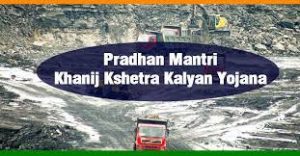
Over 1 lakh welfare projects completed in mining areas under PMKKKY
- The Ministry of Mines launched PMKKKY in 2015 for the welfare of areas and people affected by mining-related operations, using the funds generated by District Mineral Foundations (DMFs).
- Objectives:
- to implement various developmental and welfare projects in mining affected areas, complementing the existing ongoing schemes of State and Central Government;
- to minimize/mitigate the adverse impacts, during and after mining, on the environment, health and socio-economics of people in mining districts; and
- to ensure long-term sustainable livelihoods for the affected people in mining areas.
- Implementation:
- It will be implemented by DMFs of the respective districts using the funds accruing to the DMF.
- The Mines and Minerals (Development & Regulation) Amendment Act, 2015, mandated the setting up of DMFs in all districts in the country affected by mining related operations.
- The Central Government has notified the rates of contribution payable by miners to the DMFs.
- In case of all mining leases executed before 12th January, 2015 miners will have to contribute an amount equal to 30% of the royalty payable by them to the DMFs. If mining leases are granted after 12.01.2015, the rate of contribution would be 10% of the royalty payable.
- Utilisation of Funds:
- At least 60% of PMKKKY funds to be utilized for High priority areas such as Drinking water supply, Health care, Education, Environment preservation etc.
- Up to 40% of the PMKKKY to be utilized for other priority areas such as- Physical infrastructure,Irrigation, Energy and Watershed Development etc.
Air Quality Index : Delhi Under Very Poor Category
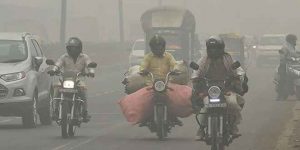
The air quality in Delhi remained in the very poor category on Air Quality Index (AQI).
- Launched by the central government in 2014 as part of the Swachh Bharat campaign, the AQI was to help simplify the common understanding of pollution.
- The AQI transforms complex air quality data of various pollutants into a single number (index value), nomenclature and colour. The pollutants measured include PM 10, PM 2.5, Nitrogen Dioxide, Ozone, Carbon, etc.
- The colour-coded AQI index helps the public and the government understand the condition of the air and what subsequent measures are to be taken to combat the situation, based on its severity.
- Six categories of AQI:
- ‘Good’ (0-50)
- ‘Satisfactory’ (50-100)
- ‘Moderately polluted’ (100-200)
- ‘Poor’ (200-300)
- ‘Very Poor’ (300-400)
- ‘Severe’ (400-500)
Middle East Green Initiative Summit 2022:

Union Minister for Environment Forest and Climate Change attended the Middle East Green Initiative Summit 2022 at COP 27 Egypt
- The Middle East Green Initiative aims to reduce carbon emissions from regional hydrocarbon production by more than 60%.
- It also plans to plant 50 billion trees across the Middle East and restore an area equivalent to 200 million hectares of degraded land.
- The initiative will help reduce global carbon levels by 2.5%.
- The first Middle East Green Initiative (MGI) Summit was hosted by HRH Mohammed bin Salman, Crown Prince and Prime Minister in Riyadh on 25 October 2021.
- It facilitated a first-of-its-kind regional dialogue on climate, with leaders in attendance from 28 countries agreeing to work together to tackle climate change.
- Saudi Arabia plans to rely on renewables for 50% of its electricity generation by 2030, , removing 44 million tonnes of carbon emissions by 2035.
G20 Presidency:
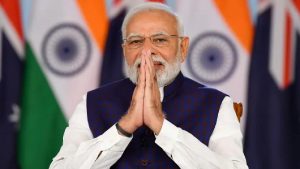
Prime Minister will unveil the logo, theme and website of India’s G20 Presidency on 8th November 2022.
- G20 Presidency offers India an opportunity to contribute to the global agenda on pressing issues of international importance.
- G20 is the premier forum for international economic cooperation representing around 85% of the global GDP, over 75% of the global trade, and about two-thirds of the world population.
- The G20 was formed in 1999 in the backdrop of the financial crisis of the late 1990s that hit East Asia and Southeast Asia in particular.
- Its aim was to secure global financial stability by involving middle-income countries.
- The first G20 Summit took place in 2008 in Washington DC, US.
- The members of the G20 are: Argentina, Australia, Brazil, Canada, China, France, Germany, India, Indonesia, Italy, Japan, Republic of Korea, Mexico, Russia, Saudi Arabia, South Africa, Türkiye, the United Kingdom, the United States, and the European Union.
- The G-20 operates without a permanent secretariat or staff.
- The chair rotates annually among the members and is selected from a different regional grouping of countries.
- The chair is part of a revolving three-member management group of past, present and future chairs referred to as the
- The preparatory process for the G20 Summit is conducted through the established Sherpa and Finance tracks that prepare and follow up on the issues and commitments adopted at the Summits.
- The Sherpas’ Track focuses on non-economic and financial issues, such as development, anti-corruption and food security, while addressing internal aspects such as procedural rules of the G20 process.
- The Finance Track focuses on economic and financial issues
Justice Rituraj Awasthi : Chairperson Of 22nd Law Commission

The Retired High Court Chief Justice Rituraj Awasthi has been appointed as the chairperson of the Law commission.
- Law Commission of India is a non-statutory body and is constituted by a notification of the Government of India.
- The Charter Act 1833 which was enacted by the British Parliament provided for the establishment of a Law Commission for consolidation and codification of Indian Laws.
- In 1835, Lord Macaulay was appointed as Chairman of the First Law Commission.
- The tenure of Law Commission is for three years.
- The Law Commission shall, on a reference made to it by the Central Government or suo-motu, undertake research in law and review of existing laws in India for making reforms therein and enacting new legislations.
- It shall also undertake studies and research for bringing reforms in the justice delivery systems for elimination of delay in procedures, speedy disposal of cases, reduction in cost of litigation etc.




